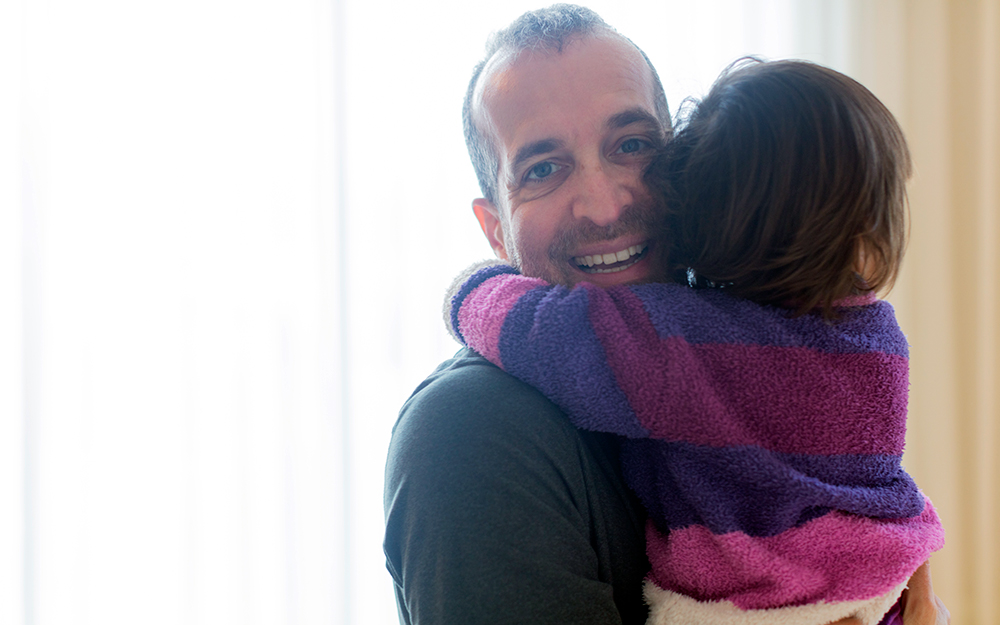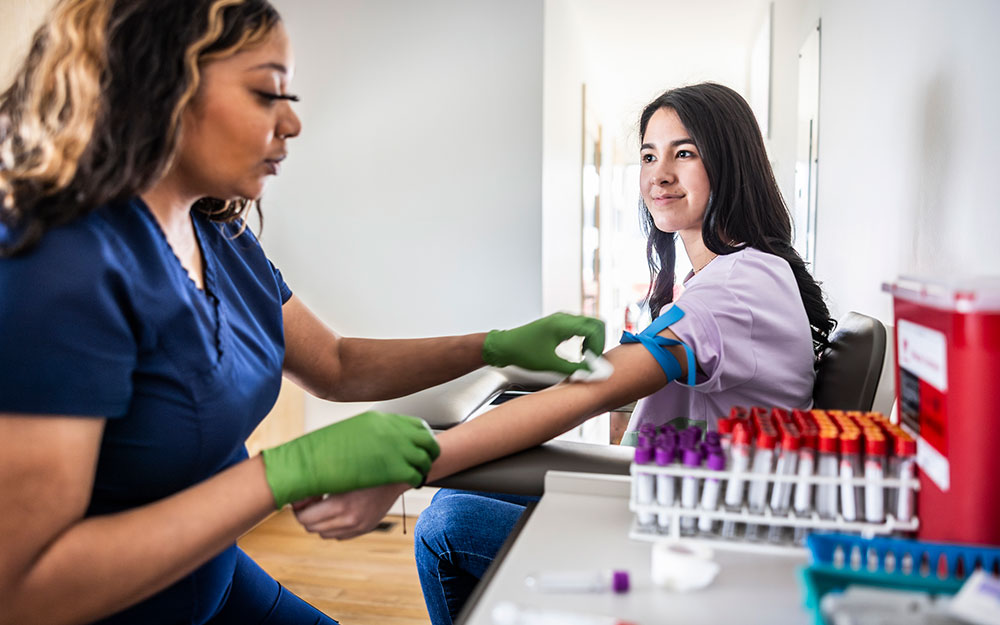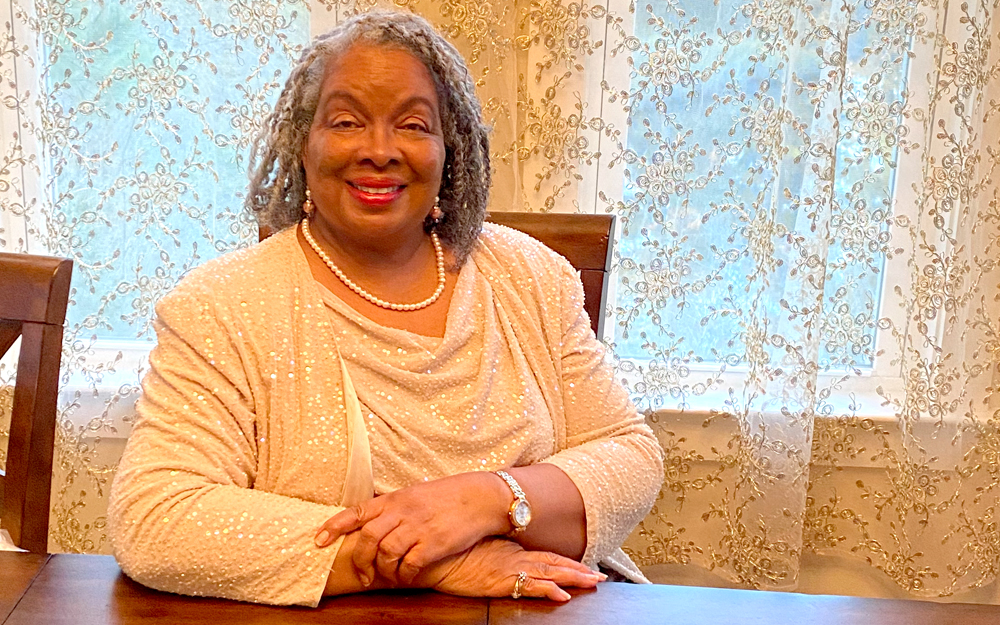After Heart Surgery, More to Love
Date
February 16, 2024
Photo: Al Cuizon

Date
February 16, 2024
Medical providers featured in this article


In Brief
{{cta-block}}
In January 2020, Jonathan Orner was scared and frustrated after being told he faced an open-heart surgery that seemed painful and unnecessary.
He wasn’t getting answers to his many questions, so he sought a second opinion with experts at the Smidt Heart Institute at Cedars-Sinai, where he immediately felt respected and cared for and ultimately received successful robotic mitral valve repair.
Today, Jonathan's heart is healed and full. Since he’s recovered, he’s become a dad, and he’s now busy caring for the 15-month-old daughter he and his wife had planned for.
“I’m so grateful to have the energy to give her attention and care for her,” he said. “I’m really blessed to be healthy and to have a healthy family.”
A Frustrating Diagnosis
Just before the first stay-at-home order at the start of the COVID-19 pandemic, Jonathan developed a cough and figured he should get it checked out. His physician didn’t suspect a virus but did detect a heart murmur and referred Jonathan to a cardiologist.
After an echocardiogram, Jonathan was diagnosed with severe mitral valve regurgitation, a leaking of one of the four valves that help blood flow through the heart and into the body. The condition caused Jonathan's heart size to increase and can lead to heart failure, heart attack or even death.
Jonathan was shocked by his diagnosis—he wasn’t out of breath and had no trouble climbing the stairs to his condo every day. He’d never heard of the condition and reeled when he was told he’d need his valve replaced with an open-heart operation. That solution scared him, and he felt dismissed when he asked questions: Was this surgery really necessary? How long did he have before he needed it? Would the condition impact his life expectancy?
He was told he had several years before he needed the procedure, but about a year later, physicians said he’d better get it fixed within six months.
“It went from being something I had years to deal with to being an immediate problem,” he said. “It was frustrating.”
Jonathan's father, who was a physician, suggested he get a second opinion. So he did some research into heart valve repair instead of replacement, and he contacted Joanna Chikwe, MD, who is the chair of Cardiac Surgery at the Smidt Heart Institute and a pioneer in the treatment of valve disease.
Calm, Confident Care
Immediately, Jonathan was impressed and comforted by Chikwe’s calm and quiet confidence. She told him a replacement wasn’t necessary and said she could repair the valve using a robotic technique—a less invasive, safer and longer-lasting option to restore his life expectancy.
Smidt Heart Institute surgeons perform more robotic valve repairs than most other programs in the U.S., with a near 100% success rate for mitral valve repair procedures.
“Repair is the gold standard,” said Chikwe, who holds the Irina and George Schaeffer Distinguished Chair in Cardiac Surgery in honor of Alfredo Trento, MD. “Patients who keep their own valves have faster recovery times as well as the best length and quality of life.”
Chikwe showed genuine concern for all his questions, and Jonathan felt so reassured that he enrolled with a new insurance provider so that he could be treated at Cedars-Sinai.
“Seeing Dr. Chikwe was the best decision I made,” he said. “She has so much experience with this technology. Plus, her attitude and the way she treated me with gentle kindness gave me a lot of trust in her.”
In January 2022, Chikwe performed the complex surgery. Vivian Burkhart, NP, a nurse practitioner at the Smidt Heart Institute, walked Jonathan through the postoperative recovery period and explained his medications. Nurses took him on careful walks, which lifted his spirits.
Five days later, Jonathan went home. His wife patiently tended to him during those first, sleepless weeks. After about a month, he was still in pain but felt much better, especially when his wife became pregnant.
“The early days of recovery gave me a lot of confidence that I would get to a point where I would be OK when the baby got here,” he said.
“Seeing Dr. Chikwe was the best decision I made. She has so much experience with this technology. Plus, her attitude and the way she treated me with so much gentle kindness gave me a lot of trust in her."
Strength and Support
Jonathan's daughter was born in late 2022, and although he was still recovering from his procedure, he was overwhelmed with joy.
Today, his heart’s size has decreased to normal. He manages the homeowners’ association of his condo and serves on the board of an education-focused nonprofit. He and his family split their time between Los Angeles and San Diego, where he is managing his parents’ estate and preparing to sell their home. They both died in August 2023.
Jonathan said that next to the support of his wife, his good health after his procedure gave him the endurance to take on the hard work of settling his parents’ affairs. He’s grateful for the strength to sort boxes of their books and belongings and move heavy furniture.
“The stress and mental overwhelm after my parents’ deaths was consuming. Without my family, I don’t know if I could’ve moved through this,” he said. “But being healthy and physically capable of waking up and facing whatever is thrown at me helps me handle the hard parts.”
Jonathan gets to do fun things, too—like make breakfast waffles for his family and take his daughter to the park. This year, he hopes to shift to a new career. As his life resets following his procedure, the birth of his baby and the loss of his parents, he looks forward to settling into a new routine.
“I’m waiting for the cards to fall to see what I’m going to do next,” he said. “But I don’t think about my heart as much now—I don’t have time to, which is good. Getting a second opinion isn’t always easy or obvious, especially in the midst of overwhelming emotion, but for me it was life changing.”





